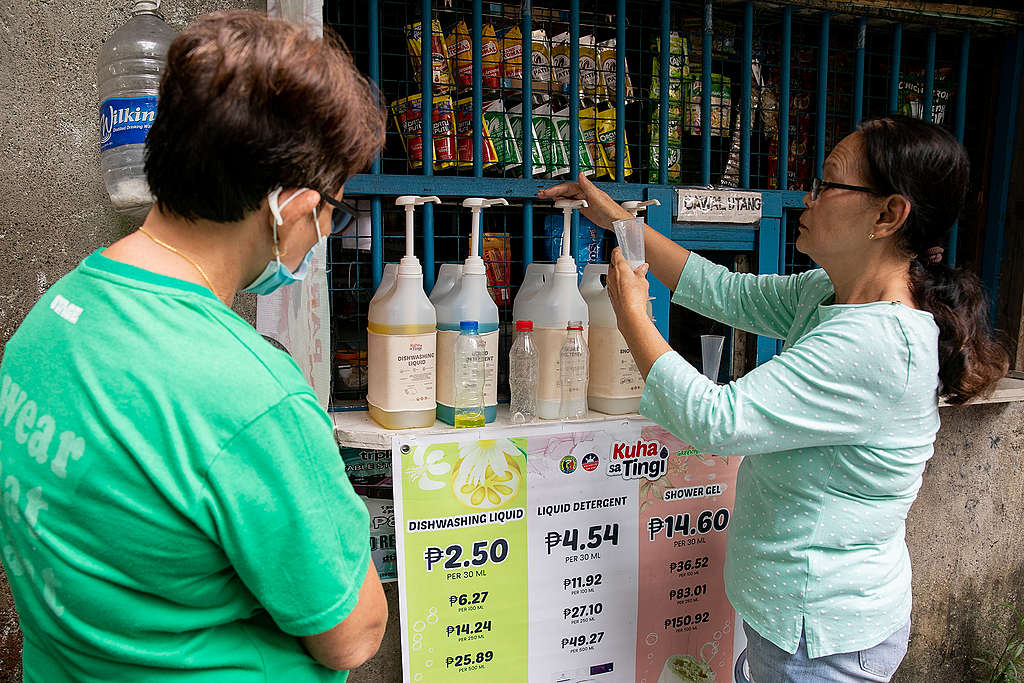QUEZON CITY, Philippines (30 March 2023) — The United Nations General Assembly (UNGA) adopted a resolution put forward by Türkiye at its seventy-seventh session in December 2022 to proclaim 30 March as the annual International Day of Zero Waste. The yearly observance of this day aims to raise awareness on zero waste initiatives at community, national, regional, and global levels, and their contribution to achieving sustainable development.

Reacting to the UNGA declaration, Greenpeace Philippines zero waste campaigner Marian Ledesma said:
“Greenpeace supports the intent to increase awareness on zero waste approaches; however, to ensure sustainable development, governments and corporations must not only focus on responsible production but urgently set targets to reduce plastic production and catalyze a just transition to reuse and refill systems.
“Industry’s present trajectory has plastic production tripling by 2050, effectively derailing multiple sustainable development goals. Without a cap in production and an immediate planned phaseout of single-use plastics, we cannot protect future generations and secure the resources they will need. We won’t even be able to safeguard the present generation from the effects of massive environmental degradation, the climate emergency, and exposure to toxic materials if we do not curb plastic production now.
“Given the alarming state of plastic pollution and the broader triple planetary crisis, we need big businesses to take action aligned with the top tiers of the zero waste hierarchy – redesigning systems, reduction, and reuse. Corporations and industries, as the most responsible for the climate and plastic crises, must commit to dramatically decreasing their plastic production and transitioning to reuse and refill systems. A just transition will be key to ensure no workers and vulnerable communities are left behind in this shift to zero waste.
“Likewise, governments must raise their ambition in terms of policy to drive down production through regulations on single-use plastic (SUP), reduction targets for industries, and support mechanisms for micro, small, and medium enterprises leading the way to a reuse economy. In the Philippines, Greenpeace is calling on Congress to urgently pass the bill to ban SUPs.”
“We can’t speak of sustainability while our systems and business models still rely on harmful materials and finite resources like plastics and the fossil fuels which they’re made of. Corporate and government actions for reduced plastic production and reuse must happen. These are what’s essential to achieving a shared vision of zero waste and sustainability.”
###
For more information, please contact:
Eunille Santos, Digital Campaigner
Greenpeace Philippines | [email protected] | +63 9175411248
Maverick Flores, Communication Campaigner
Greenpeace Philippines | [email protected] | +63 9176211552
